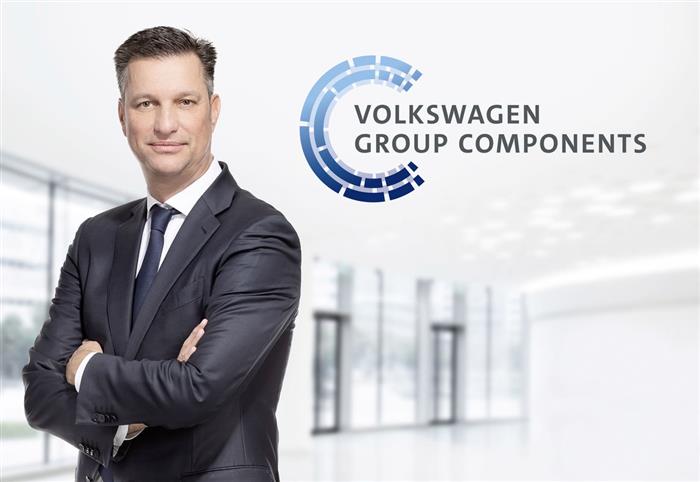After three years of spin-off, Volkswagen Components was established in January this year, with nearly 80,000 employees in 47 locations worldwide.
As a core move towards electrification, Volkswagen is restructuring a 35 billion euro ($ 39 billion) parts business.
Take the ID3 pure electric new car, for example, although it still uses a lot of traditional parts, it is very different in core systems such as power. Therefore, the relevant departments of Volkswagen Auto Parts must make adjustments for this type of vehicle.
This round of transformation begins at its base in Salzgitter, Germany, where the plant now produces electronic components for Volkswagen and gradually starts the production of automotive batteries.
According to Volkswagen's plans, their next step is to add a 16kW · h battery plant at the Salzette plant, and a joint venture with Swedish battery startup Northvolt will also start production in 2023.
Thomas Schmall, chairman of Volkswagen Group Components' management committee, said the company's biggest shift in electrification of parts and components will take place in Salzette, which will serve as a model for the entire German automotive industry.
In addition, he cited other challenges facing Volkswagen Components. The most urgent thing is to make the engine comply with Euro 7 emission standards in order to maintain the environmental feasibility of new cars in the future. Facing the general trend of shifting from diesel to gasoline, they must adjust European production capacity and increase production of electric drivetrains.
After a three-year spin-off, Volkswagen Components was formally established in January this year. The group has nearly 80,000 employees in 47 locations around the world, producing a wide range of components from transmission shafts, shock absorbers, front axles to steering system connection components.
However, their main task is to produce more than 10 million internal combustion engines and gearboxes each year. At the same time, with the gradual advancement of electrification transformation, the company must reduce its related output by about 2040 and ensure that it does not cause a continuous impact on profits.
Sources said that the average profit margin of Volkswagen Components is about 4%-5%, depending on the product. In order to protect the profitability of the company, one in ten employees will be laid off within the next 4 years, but considering a current labor agreement in Germany, some factories with better operating conditions will not lay off workers in the next 10 years.
Thomas Schmeler declined to confirm the specific profit margin of the parts business, but said that his current goal is still to achieve the strategic goal set by the high-level: 6% profit margin.
But he also predicts that component suppliers that switch to electric vehicles will have a difficult time raising their returns to more than 10%, but Volkswagen can rely on economies of scale to survive this difficult transition period.
"By 2025, we plan to produce up to 1 million new electric drivetrains at the Kassel plant in Germany, which will make us one of the largest suppliers in the global market. With this scale, we Can shape a more competitive production role globally. "
In order to pay for the huge investments in the electrification sector, Volkswagen is looking for new sources of revenue for the company's parts business.
According to Volkswagen's plan, they will invest about 3.6 billion euros ($ 4 billion contract) in the electric vehicle parts business in 2023, but this means that funds and budgets in other areas will be limited.
To address this challenge, Thomas Schmeler recently reached an agreement with Japan's NSK Bearing Seiko Co., Ltd. to merge part of the traditional steering business to share costs. This decision helps them focus more on the related transformations of autonomous driving and electrification businesses.
The goal of Volkswagen Parts Group is to use the transaction with NSK as a blueprint for transformation, so as to strengthen other core businesses of Volkswagen. Thomas Schmeler believes that its subsidiary companies such as seat manufacturing have the opportunity to expand their business and will eventually gradually include supporting products for autonomous driving.
When a vehicle collides, an occupant of the self-driving car can avoid being in the front face position of a traditional fuel car, and a dedicated seat solution has more imagination. "It sounds simple, it's just the components at the interior level, but the car seat is actually a complex product, which is easily ignored by the industry."

At present, Volkswagen is looking for a suitable partner for seat subsidiary Sitech to share the development cost of new technologies. According to information from Thomas Schmeler, the company is now at a critical stage of selecting partners.
In order to make up for business losses that are not competitive to achieve profit return goals, they are also looking for new sources of income, such as external sales from mobile energy storage equipment and recycling of some raw materials in used batteries.

